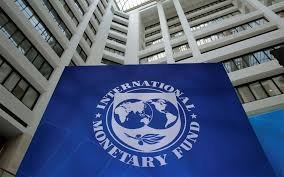Debt of N24.39tn by Nigeria: the International Monetary Fund has expressed concerns over the ability of Nigeria to pay back. The concern also bothers that the debt is continually growing though it confirms that conditions were favourable for Nigeria to continue to borrow.
Presenting at the Global Financial Stability Report at the Joint Annual Spring Meetings with World Bank in Washinton DC, Tobias Adrian, Financial Counsellor and Director, Monetary and Capital Markets Department, IMF said, “Nigeria has been borrowing in international markets but we worry. So, on the one hand, that is very good because it allows Nigeria to invest more; but on the other hand, we do worry about rollover risks going forward.
“At the moment, funding conditions in economies such as Nigeria and other sub-Saharan African countries are very favourable but that might change at some point. And there is a risk of rollovers and there is the risk of whether these needs for refinancing can be met in the future.”
The DMO reports that the debt rose by N2.66tn from December 31, 2017 to December 31, 2018. DMO further reports that the year-on-year growth of public debt show 12.25% within the one-year period.
Responding to the IMF statement, the Federal Government described the nation’s debt burden as sustainable. The Minister of Budget and National Planning, Senator Udoma Udo-Udoma argued that it poses no harm to the economy of Nigeria. He said the borrowing is to spend on infrastructure and productive purposes. He further argues that it is done by all other countries as long as there was a back-up revenue base.
In a Federal Executive Council meeting on Wednesday at the Presidential Villa the minister said, “We do have a revenue challenge and we are focusing on that. Once the revenues come up, it will be obvious that we don’t have a debt problem at all.
“We are working on a number of initiatives to increase our revenues. We are looking at initiatives to widen the tax base. We are looking at initiatives to increase efficiency in collection.
“We are looking at a single window, which will help to increase efficiency, custom collections. We are looking at many different ways to improve revenues.
“The debts are sustainable; every nation borrows. We are working on increasing our revenues.”
Furthermore, he spoke on the 2019 budget still awaiting passage by the National Assembly. “With regard to the budget, we are happy to see the focus of the National Assembly on the budget and we look forward to whenever it is passed and the executive receiving it,” he added.
Commenting on the growing Chinese investment in Africa, Adrian said, “Lending — capital flows in general and these include flows from China — are, of course, important for development, on the one hand. On the other hand, what is very important in those lending arrangements are the terms of the loans.” He added that the recipients of the loans in the sub-saharan Africa should ensure that the terms were favourable to them.
“We urge countries to make sure that when they borrow from abroad, that the terms are favourable for the borrower. In Particular, we tend to recommend that loans to countries should be conforming to Paris Club arrangements. And that is not always the case with loans from China.”
The IMF said corruption is a challenge for many countries with rich resources an dhas affected the approach to managing Sovereign Wealth Funds.
The Bretton Wood institution in view of this ranked Nigeria the second worst performer on the Sovereign Wealth funds user index ahead of Qatar in the Fiscal Monitor.
Countries like Sudan, Chad, Angola, Libya, Botswana, Equatorial Guinea, Ghana and Columbia ranked better than Nigeria.
The IMF in the report advised that “Sovereign Wealth Funds should abide by clearly established rules and governance arrangements, and report regularly on operations and investment performance, with eternally audited annual financial statements.”
Commenting on the extra budgetary spending of the Sovereign Wealth Funds IMF said, “It is critical to develop a strong institutional framework to manage these resources—including good management of the financial assets kept in sovereign wealth funds—and to ensure that proceeds are appropriately spent. This remains a significant challenge in many resource-rich countries that, on average, have weaker institutions and higher corruption
“The governance challenges of commodity-rich countries— that is, the management of public assets— call for ensuring a high degree of transparency and accountability in the exploration of such resources. Countries should develop frameworks that limit discretion, given the high risk of abuse, and allow for heavy scrutiny.”
Paolo Mauro, the Deputy Director, Fiscal Affairs Department resounded the need for transparency of Sovereign Wealth Funds. He adds that it is important for countries of rich resources to channel appropriately their resources to where and persons who need it.

